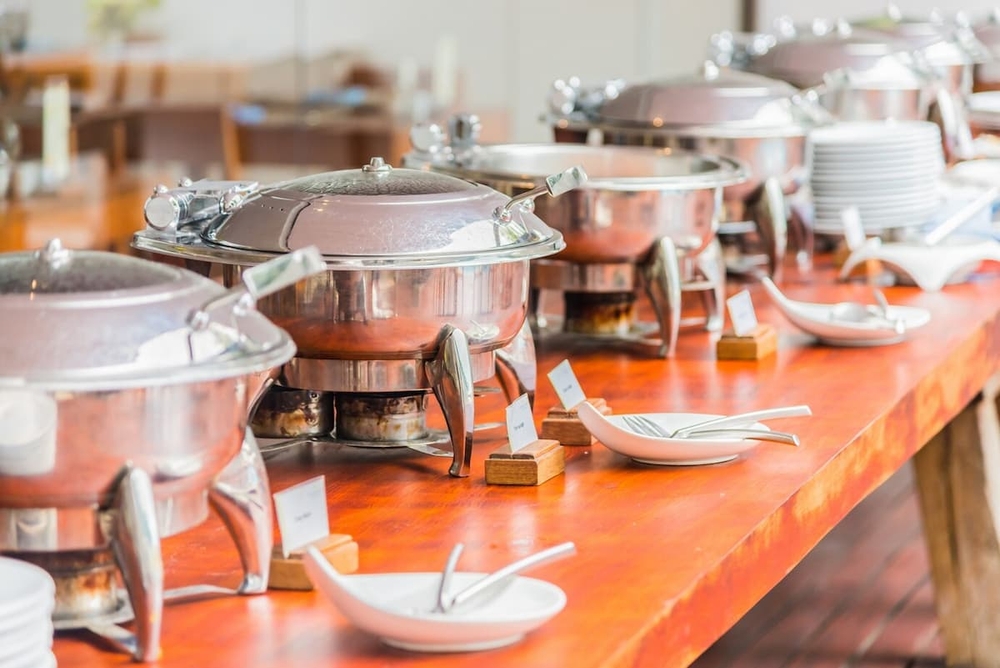Food quality control in delivery: What is, the importance and best practices for your business
Table of Contents
CloudKitchens
How many tacos can be delivered from a 1000sqft restaurant?
The same amount as a 200sqft ghost kitchen.
Food quality control is a set of procedures and standards used to ensure that food products meet specific quality and safety criteria. Maintaining high food quality standards is essential for customer satisfaction and business success!
In the highly competitive restaurant and delivery industry, maintaining impeccable food quality is crucial not only for customer satisfaction but also for the success and reputation of your business.
Food quality control (FQC) is a systematic approach to ensuring that food products meet established standards of quality, safety, and consistency. We’re gonna explore the concept of food quality control, its importance, and practical ways to implement it in your delivery operations.
What is food quality control?
In the food industry, quality control involves testing and evaluating food products throughout the production process to ensure they meet established standards. This process ensures that products consistently adhere to the required specifications without deviation.
This includes monitoring and evaluating the ingredients, preparation methods, and final output to ensure alignment with safety regulations and quality expectations to maintain consistency across all food offerings.
When a customer receives food via delivery, they will certainly want to receive the food well packaged, at the right temperature and a tasty food. All of this must go through quality control.
The importance of food quality control
Ensures consumer safety
Food quality control is essential for safeguarding consumer health and also, have the security that your business is doing well. Plus, safe food will always bring your customers back.
By rigorously monitoring food production and handling processes, you can prevent contamination, spoilage, and other hazards that could compromise food safety. This proactive approach helps in identifying and mitigating risks before it reaches the consumer.
Keeps high-quality standards
Maintaining high-quality standards is vital for customer satisfaction and business success. Food quality control ensures that every dish prepared and delivered meets the expected level of quality, taste, and presentation. This consistency is key to building a strong brand reputation and customer loyalty.
Maintaining consistency
Consistency in food quality is crucial for catering and restaurant businesses. Quality control measures help ensure that each order meets the same standards, regardless of when or where it is prepared. This consistency helps in providing a reliable experience for customers and as said before, establishes trust in your brand.
Builds consumer trust
Consumers are more likely to return to a business they trust. Effective food quality control builds consumer confidence by demonstrating a commitment to safety and quality. Customers will always expect the best from your food, so it’s best to meet their expectations as best as possible, and of course, safety is essential.
When customers know they can count on your food to be consistently good and safe, they are more likely to become repeat patrons and advocates for your business.
Promotes sustainability
Food quality control also supports sustainability by reducing waste. By ensuring that food products are prepared and handled correctly, you can minimize spoilage and waste. This not only helps in managing costs but also aligns with environmentally responsible practices, which can be a significant selling point for some consumers.
Quality Control vs Quality Assurance
Another valuable tool for food industry businesses is Quality Assurance (QA). Unlike Quality Control (QC), which identifies food products that don’t meet standards, Quality Assurance aims to prevent defects from occurring in the first place.
We can define Quality Control as a reactive process; it only identifies when an error has already happened and stops it from reaching the final consumer. On the other hand, Quality Assurance processes involve using equipment and procedures to prevent defects from occurring, making it a proactive action.
Of course, it’s very difficult, if not impossible, to guarantee that nothing will ever go wrong. However, Quality Assurance processes involve meticulous control over the acquisition and storage of ingredients, as well as the food preparation, contributing significantly to delivering the desired quality standard.
What Methods and Equipment Are Used for Food Quality Control?
Naturally, every company has its own unique methods and processes for food quality control. However, this doesn’t mean there aren’t standard procedures that can serve as a reference for your business.
We can break these procedures down into four key steps:
- Ingredient Monitoring: Always know the components and origin of every food product entering your facility;
- Supplier Control: Thoroughly vet your food suppliers. Research their history for regulatory issues or quality problems, and prioritize those offering transparency in their internal processes;
- Recipe and Storage Documentation: Document all machine usage, food handling, and storage procedures. This not only simplifies staff training and helps identify issues, but also provides crucial records for process improvement;
- Real-time Data Recording: Implement food quality control software for real-time monitoring and tracking of ingredients and products. This meticulous oversight prevents errors from going unnoticed, ensuring food reaches consumers in optimal condition.
In summary, effective food quality management relies on meticulous oversight from ingredient sourcing to final product, leveraging technology and robust processes to guarantee safety and excellence.
How to implement food quality control in delivery?
You already know the importance of food quality control in your delivery, right? But, do you know how to implement it? Here’s a guide on how to implement effective food quality control in delivery!
1. Have technologies to help you
There are many technologies available to assist with quality control in your restaurant. One such tool is a Quality Management System (QMS), which helps by documenting processes, procedures and responsibilities to meet your business’s quality policies and objectives.
Additionally, there are Temperature Monitoring Systems, Shelf-Life Management Systems which alert you when products and ingredients are close to expiring, Risk Assessment Tools to identify and manage potential hazards in food preparation and handling, and much more.
It is important to understand these technologies, hire services that will help you directly so that your business has complete coverage. It’s essential that you regularly monitor and inspect food at every stage, from preparation to delivery.
2. Establish clear standards
Define specific quality and safety standards for all stages of food preparation and delivery. This includes sourcing ingredients, cooking, packaging, and transportation. Ensure these standards are consistently met from kitchen to customer.
3. Invest in proper packaging
Choose packaging that maintains the integrity of the food, preserving temperature, preventing spills, and protecting against contamination. Insulated containers or bags are essential for maintaining the right temperature during transit of food.
4. Train staff on quality control
Training staff on quality control is crucial in maintaining high standards in food delivery. Because you will set clear expectations for them to meet the criteria for food preparation, packaging, and delivery.
Make sure all staff members understand these standards.Develop training programs that cover every aspect of quality control, including food safety, hygiene, and handling procedures. Try to include not only theoretical knowledge but also practical applications.
5. Incorporate customer feedback
In this case, it is important that you listen to what customers have to say so that you can implement improvements and changes when necessary. So, it’s important to encourage customers to share their thoughts on food quality, delivery service, and overall experience. Use surveys, online reviews, and direct communication to gather insights.
You can send some communication about it along with the food, or send a small gift to make your customer feel special to your business. This will encourage you to give more organic feedback and you will be able to implement ideas and changes with more quality.
6. Conduct regular audits
Perform regular audits of delivery processes to identify areas for improvement and ensure compliance with quality standards. This will place your business in a position of greater responsibility towards your customers, showing the market that you take all necessary processes seriously.
By implementing food quality control measures, you can ensure that your restaurant food products consistently meet high standards of safety and quality. This not only enhances customer satisfaction but also contributes to the long-term success and sustainability of your business.
Now that you know how to take care of the quality of your business’ food, also check out top 5 food delivery apps for your restaurant!
Your delivery can go much further!
Now that you’ve learned about food quality control, you have everything you need to make your takeout service a standout success. If you’re ready for a simple, turnkey solution to expand your business, it’s time to explore CloudKitchens.
CloudKitchens can streamline the process and have your kitchen up and running in just a few weeks! This way, you can start delivering much more quickly. How about visiting our solutions and understanding what else your business needs to take off and be successful?
DISCLAIMER: This information is provided for general informational purposes only and the content does not constitute an endorsement. CloudKitchens does not warrant the accuracy or completeness of any information, text, images/graphics, links, or other content contained within the blog content. We recommend that you consult with financial, legal, and business professionals for advice specific to your situation.
More insights & stories
There’s more where that came from.
Get in the know and check out our additional insights


